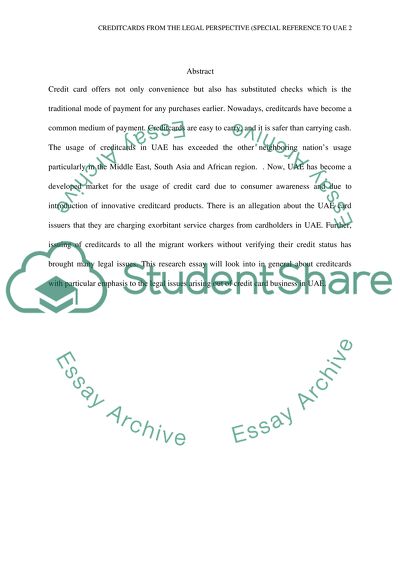Cite this document
(“Credit cards from the legal perspective (special reference to UAE) Research Paper”, n.d.)
Credit cards from the legal perspective (special reference to UAE) Research Paper. Retrieved from https://studentshare.org/law/1401880-credit-cards-from-the-legal-perspective-special
Credit cards from the legal perspective (special reference to UAE) Research Paper. Retrieved from https://studentshare.org/law/1401880-credit-cards-from-the-legal-perspective-special
(Credit Cards from the Legal Perspective (special Reference to UAE) Research Paper)
Credit Cards from the Legal Perspective (special Reference to UAE) Research Paper. https://studentshare.org/law/1401880-credit-cards-from-the-legal-perspective-special.
Credit Cards from the Legal Perspective (special Reference to UAE) Research Paper. https://studentshare.org/law/1401880-credit-cards-from-the-legal-perspective-special.
“Credit Cards from the Legal Perspective (special Reference to UAE) Research Paper”, n.d. https://studentshare.org/law/1401880-credit-cards-from-the-legal-perspective-special.


